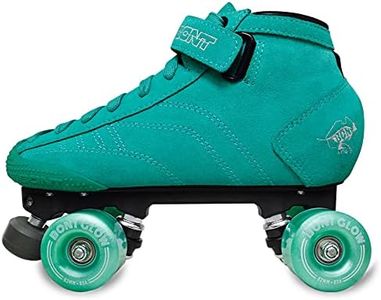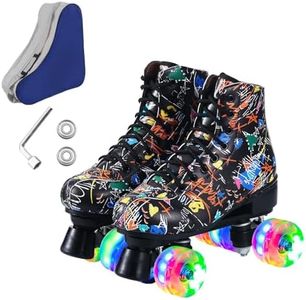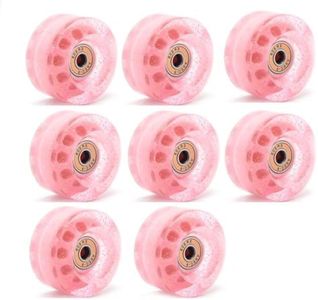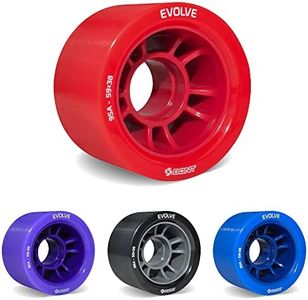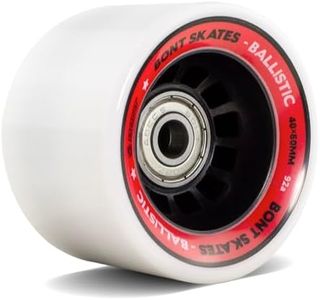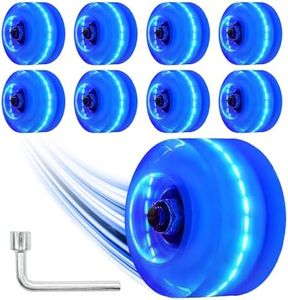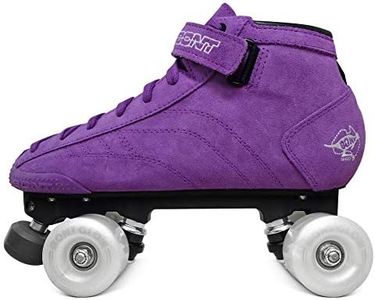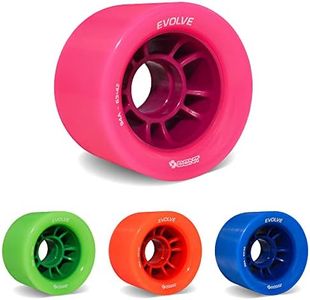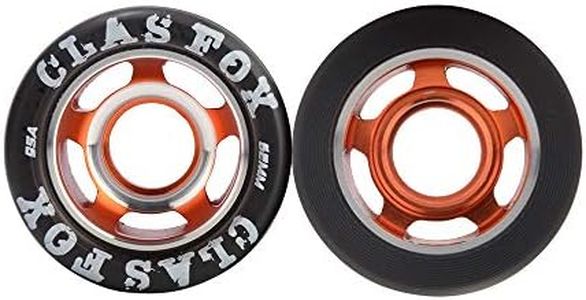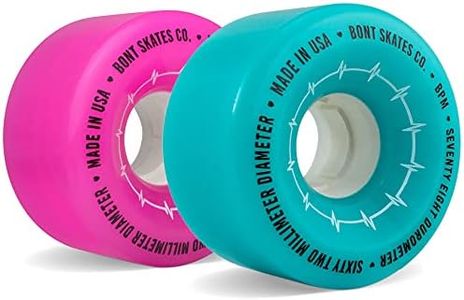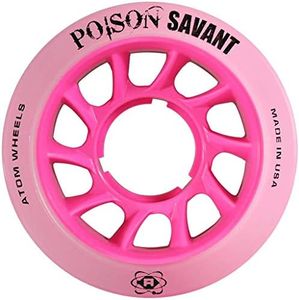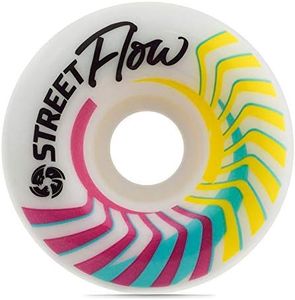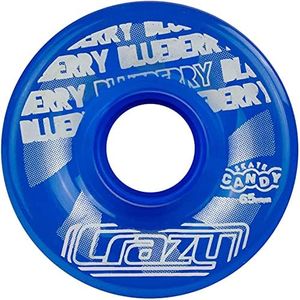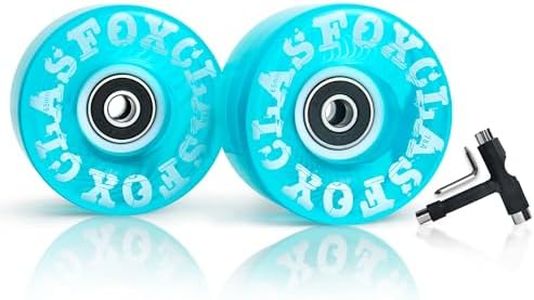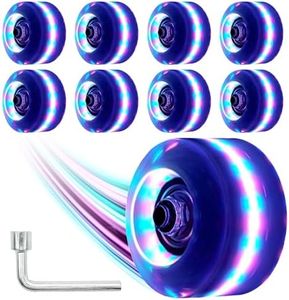We Use CookiesWe use cookies to enhance the security, performance,
functionality and for analytical and promotional activities. By continuing to browse this site you
are agreeing to our privacy policy
10 Best Indoor Skate Wheels
From leading brands and best sellers available on the web.By clicking on a link to a third party's website, log data is shared with that third party.
Buying Guide for the Best Indoor Skate Wheels
Choosing the right indoor skate wheels is essential because they impact your overall performance, comfort, and safety when skating on indoor surfaces. Indoor wheels are specifically designed to handle smooth and hard floors, like those found in gyms, skating rinks, or sports halls. When selecting indoor skate wheels, it's important to understand the different features and how each relates to your personal skating style, skill level, and the activities you plan to do. To find the best match, consider how fast you want to go, how much control and grip you need, and the kind of skating you enjoy most.Wheel Hardness (Durometer)Wheel hardness or durometer is a measure of how hard or soft the wheels are, with values typically ranging from around 82A to 104A for indoor wheels. Harder wheels (95A and above) are faster and slide more easily, making them great for speed skating and advanced tricks, but they offer less grip. Softer wheels (82A to 94A) provide better grip and control, especially useful for beginners or those who prioritize maneuverability and smoother rides. To pick the right hardness, think about the type of floor you'll skate on and your experience level: softer for more grip and comfort, harder for speed and agility on polished surfaces.
Wheel Size (Diameter)Wheel size is typically measured in millimeters, with most indoor skate wheels falling between 55mm and 65mm in diameter. Smaller wheels (55mm–59mm) are lighter, offer quicker acceleration, and make changing direction easier, ideal for technical skating or roller derby. Larger wheels (60mm–65mm) roll faster and handle debris better, providing more momentum which suits speed skating and smoother gliding. Choose a larger wheel if you value speed and covering more distance, or a smaller wheel if nimble control and quick moves are important for your skating style.
Wheel Shape (Profile)The profile or shape of a skate wheel describes its cross-section, which can be narrow (more pointed), medium, or wide (more rounded or flat). Narrow profiles reduce friction for faster speeds and sharper turns, often used in competitive or artistic skating. Wider profiles offer more surface contact with the floor, giving superior balance and grip, perfect for beginners or team sports like roller derby. Pick a narrow profile for agility and fast direction changes, or go for a wider wheel for stability and grip, especially if you’re new to skating indoors.
Wheel MaterialMost indoor skate wheels are made from polyurethane, known for its good grip and durability. However, not all polyurethane is the same; the formula can be optimized for either more grip or more slide. Higher-quality materials offer a smoother ride and resist flattening, which is important for consistent performance. When choosing wheels, ensure they’re labeled for indoor use and opt for reputable materials that suit your main activity—whether that's dancing, speed skating, or derby—since this will affect both traction and longevity.
